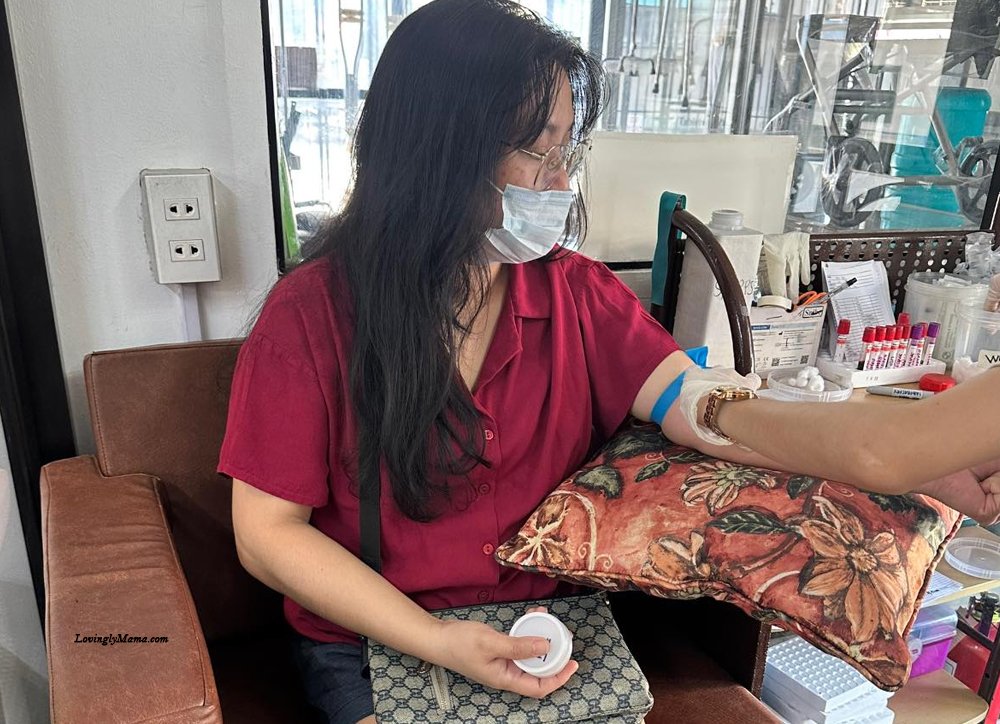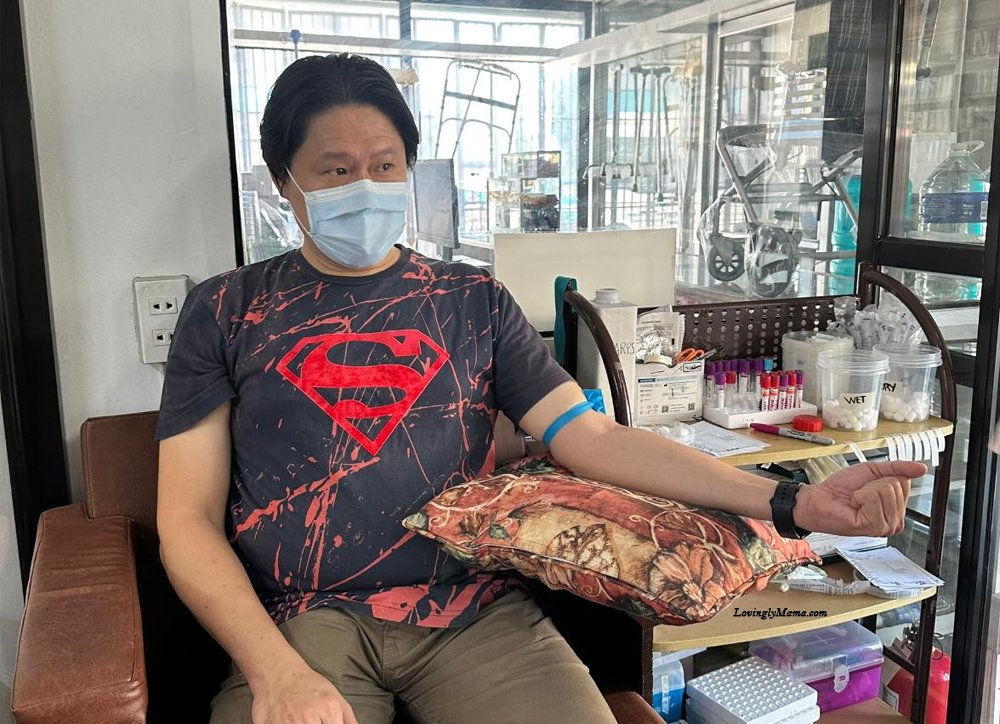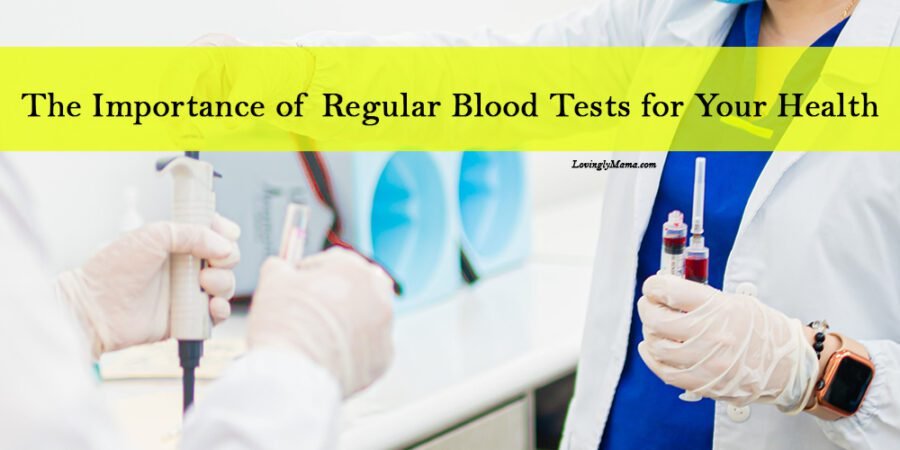Many of us, especially those in our 20s and 30s, do not feel the need to get regular blood tests. After all, they are busy living their lives—working hard and playing hard. It is really easy to overlook the importance of routine health check-ups, specifically, regular blood tests. After all, why would you want to go out of your way to get your blood drawn and pay a big amount of money just to scrunch up a bunch of numbers? However, these simple yet powerful examinations play a crucial role in maintaining and monitoring our overall well-being. Let’s look into the significance of getting regular blood tests done. This is your key to unlocking vital insights into your health and getting into preventive maintenance.

Why You Need Regular Blood Tests
For maintenance or prevention, annual blood testing¹ and physical checkups are good. But if you already have pre-existing health conditions like diabetes or high blood pressure, you have to get tested at least every 6 months.
But why do you need to get regular blood tests even if you appear generally healthy?
Early Detection of Health Issues
Regular blood tests serve as a proactive approach to health. Just by reading the results, your physician can determine potential issues before they escalate. Whether it’s identifying elevated cholesterol levels, abnormal blood sugar levels, or signs of inflammation, these tests can uncover health concerns at an early stage. Your doctor can then recommend a timely intervention and preventive measures.
Customized Health Assessment
Our issues are unique to us because our current situation is the combination of genes, lifestyle, and exposure to certain elements. Blood tests provide personalized insights into your unique health profile. From assessing nutrient levels to understanding the functioning of vital organs, these tests offer a comprehensive overview, enabling healthcare professionals to tailor their advice and interventions based on what you need.

Monitoring Chronic Health Conditions
For individuals managing chronic conditions such as diabetes, hypertension, or heart disease, regular blood tests are necessary. The records help doctors monitor the effectiveness of medications, adjust treatment plans, and ensure that your condition is well-managed to prevent complications. If you are on maintenance medications, the blood tests also show how these medicines are affecting other organs. Doctors can compare data from previous tests to your present results.
Preventive Health Measures
We have always heard the saying, “An ounce of prevention is better than a pound of cure.” It may be cliché but regular blood tests can educate you about yourself and can give you the chance to adopt a proactive approach to your health. By identifying risk factors early on, you can make informed lifestyle choices, such as dietary adjustments, exercise routines, and stress management techniques, to prevent the onset of potential health issues.

Empowering Informed Decision-Making
Knowledge is power, especially when it comes to your health. Regular blood tests provide you with the information you need that can empower you to make informed decisions about your lifestyle, diet, and overall well-being. With the data on your hands, you can take proactive steps towards a healthier and more fulfilling life. Compile the results for your personal and your doctor’s records.
Tracking Progress and Wellness Goals
If you are on a fitness journey or working towards specific wellness goals, blood tests can be a valuable tool for tracking your progress. From monitoring changes in cholesterol levels to assessing the impact of dietary and lifestyle modifications, regular testing provides tangible data that can guide you on your path to better health.

Get Regular Blood Tests in Bacolod City
Regular blood tests are not just a routine medical procedure. They are a proactive investment in your health and well-being. Knowing about your potential issues early, customizing your healthcare approach, and empowering you to make informed decisions, these tests play an important role in maintaining a healthy and balanced life. So, the next time you consider skipping that blood test, remember that a simple procedure could be the key to unlocking a healthier and happier future.
However, blood testing can eat a chunk of your family budget, as depending on the tests, it can be in the thousands of pesos. This is a big deterrent for those who think that they do not need these tests yet.
In Bacolod City, know that there is a laboratory that can give you fast and accurate results at less cost.

MCS Diagnostic Center
Hilado St. corner LN Agustin Dr., (In front Apollo Restaurant)
Bacolod City, Negros Occidental, Philippines
(034) 709 6065
Open Mondays to Sundays, from 7am to 5pm
Common Kinds of Blood Testing
Here are the common blood tests² being done that are usually packaged with a urinalysis.
Complete blood count
A routine complete blood count (CBC) checks for levels of 10 different components of every major cell in your blood. This covers the white blood cells, red blood cells, and platelets.
Basic metabolic panel
A basic metabolic panel (BMP) usually checks for levels of eight compounds in the blood. These are, namely:
- calcium
- glucose
- sodium
- potassium
- bicarbonate
- chloride
- blood urea nitrogen (BUN)
- creatinine
Lipid panel
This test checks the levels of two types of cholesterol. These are, namely:
- high-density lipoprotein (HDL), or “good” cholesterol
- low-density lipoprotein (LDL), or “bad” cholesterol
HDL is the “good” kind because it removes harmful substances from your blood and helps the liver break them down into waste. Meanwhile, LDL is “bad” because it can cause plaque to develop in your arteries, increasing your risk of heart disease.
Blood sugar testing
The level of glucose in the blood is tested for the onset or the level of diabetes. There is the FBS or fasting blood sugar, which requires a 10 to 12-hour fast, so this is usually done early in the morning.
Meanwhile, there is another test called the hemoglobin A1C (HbA1C), which shows the blood sugar levels for the last 2-3 months.
Sources
- ¹ How Often Do I Need Routine Blood Work?, Comprehensive Primary Care, https://comprehensiveprimarycare.com/how-often-do-i-need-routine-blood-work/
- ² All About Blood Tests, Healthline, https://www.healthline.com/health/blood-tests#what-to-ask
- ³ Mean fasting blood glucose, World Health Organization https://www.who.int/data/gho/indicator-metadata-registry/imr-details/2380
- ⁴ Hemoglobin A1C (HbA1C), Medline Plus, https://medlineplus.gov/lab-tests/hemoglobin-a1c-hba1c-test/


Very important talaga Ang blood testing para malaman kung may karamdaman / sakit Ang Isang tao. At upang maagapan habang maaga pa.
Awareness is the key 🔐
Prevention is always better than cure.